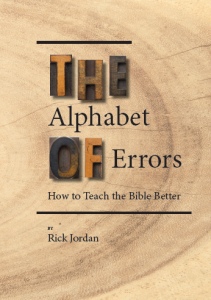
Before we even open a text, what assumptions do we bring to it?
Last Sunday, my pastor and I began co-teaching a seven-week (of course) course on Revelation. I’ve been reading several commentaries and watching several videos to prepare. I’ve learned a lot that I am eager to share. I also always enjoy some interactive learning.
I kicked the course off with some basic assumptions about a person’s approach to any scripture text. I began from the human dimension. Were I to start with the divine dimension, I would begin, “There is a God; God is love”; etc. But since this was leading into a chart of four ways Revelation has been interpreted, I wanted to begin with why there are so many varied interpretations, so I started with people.
Here is what I said.

- We tend to think that we are the smartest generation.
- At the same time, we tend to think that what we are believing now is what has always been believed by good Christians.
- We base many of our decisions on emotion, not rationality.
- We tend to think that the Christians before our generation were better at being followers of Jesus than we are in our generation.
- We make cultural assumptions that shape our view of almost everything – what is good to eat, how to dress, gender roles, leadership roles, political choices, even religious choices.


